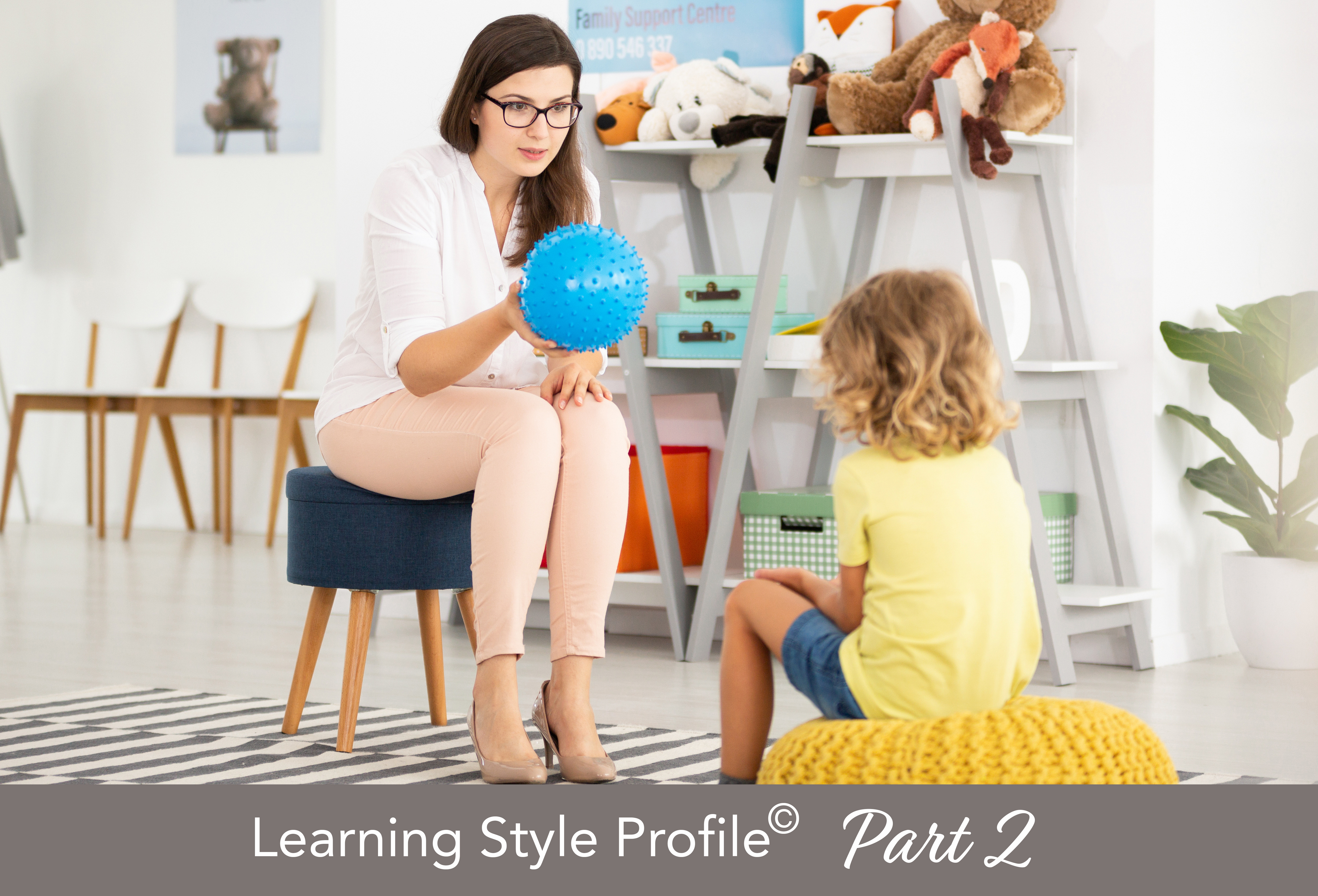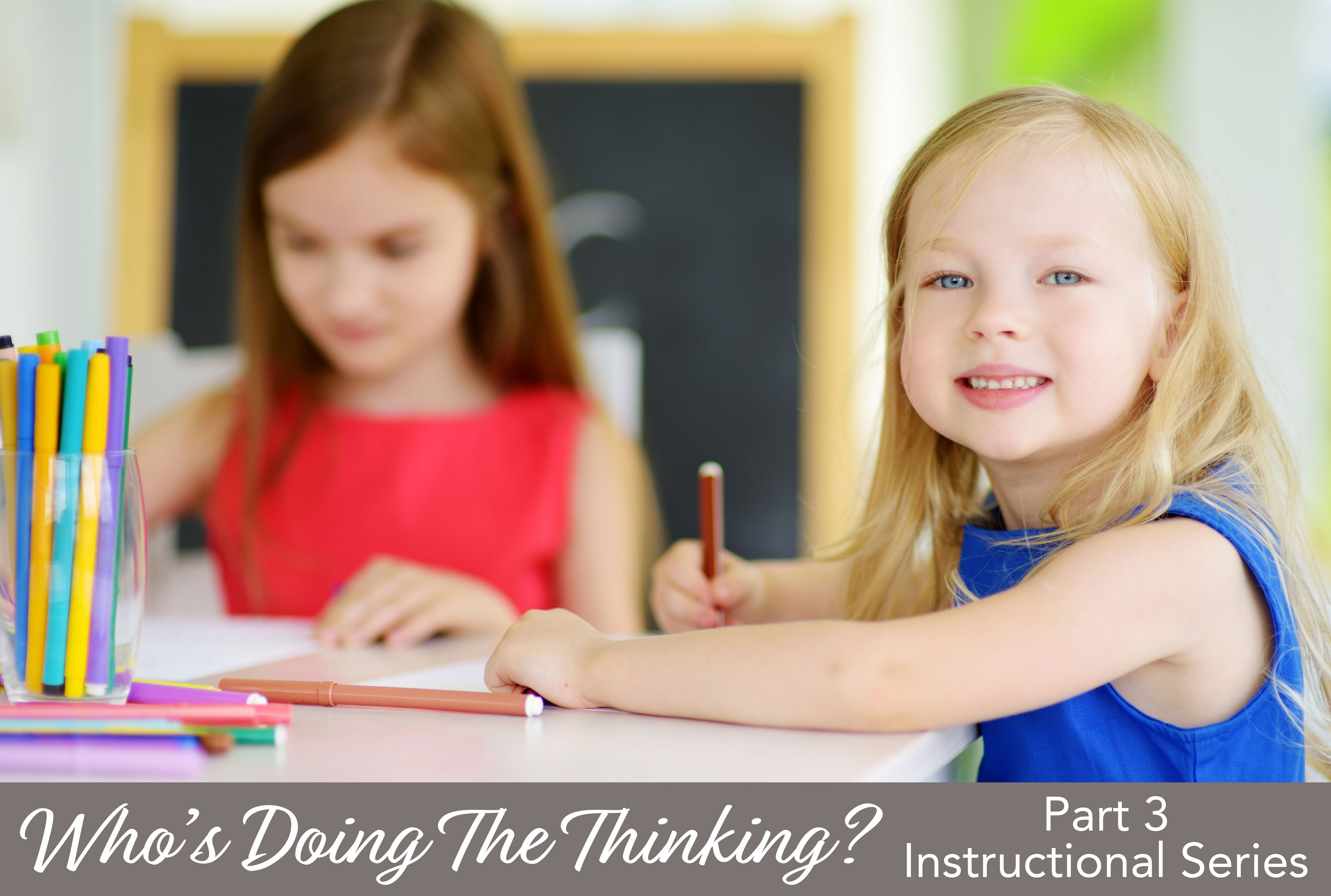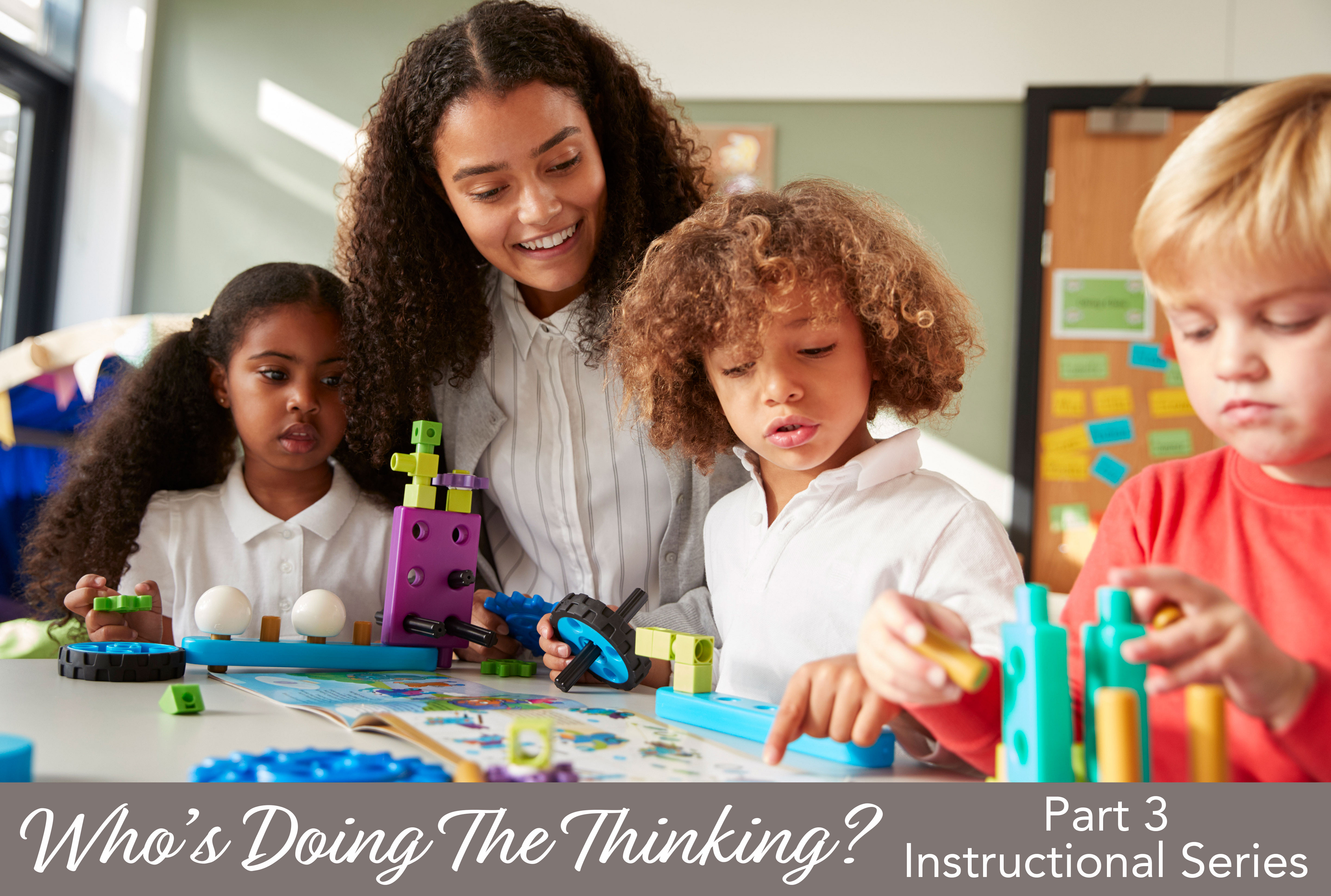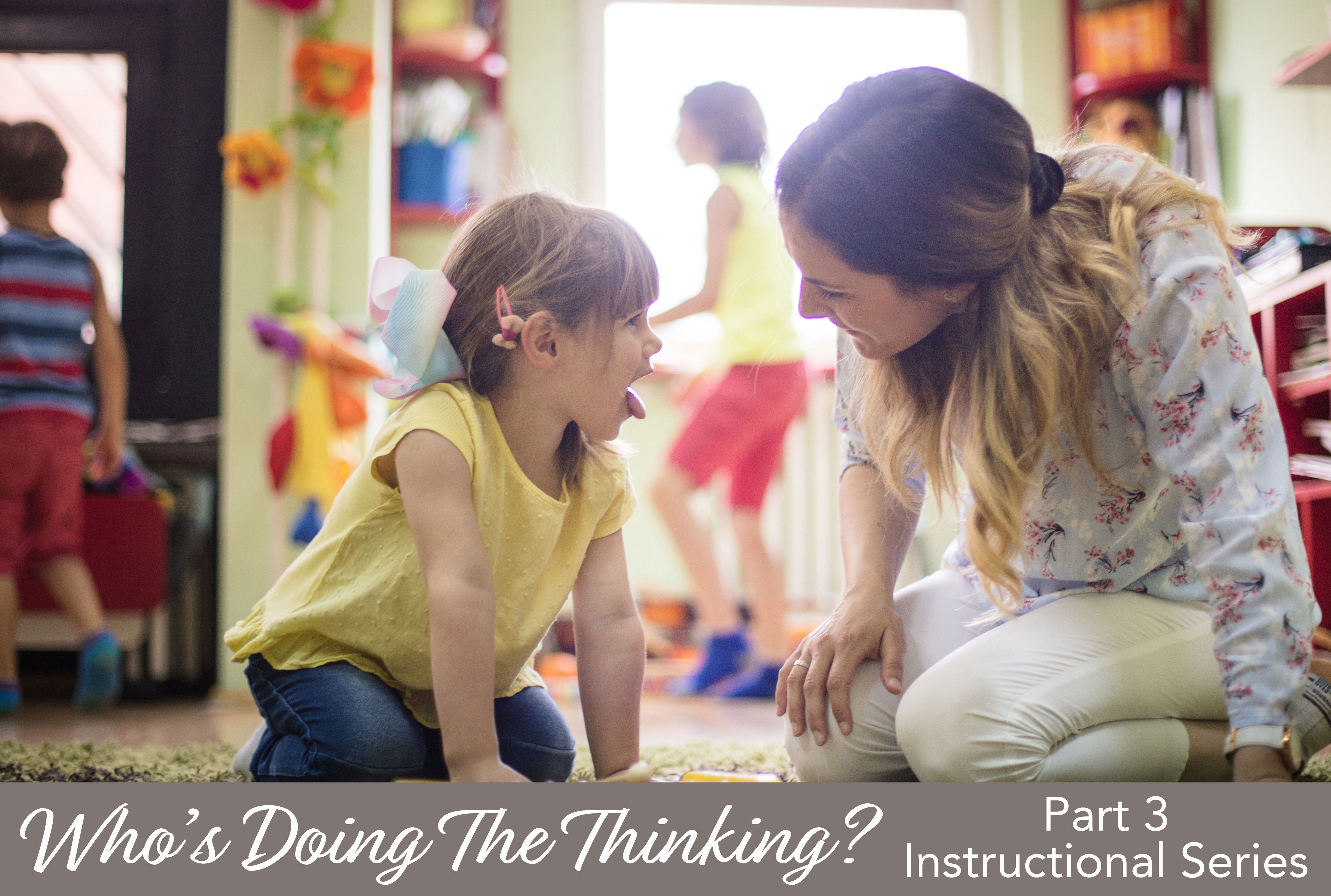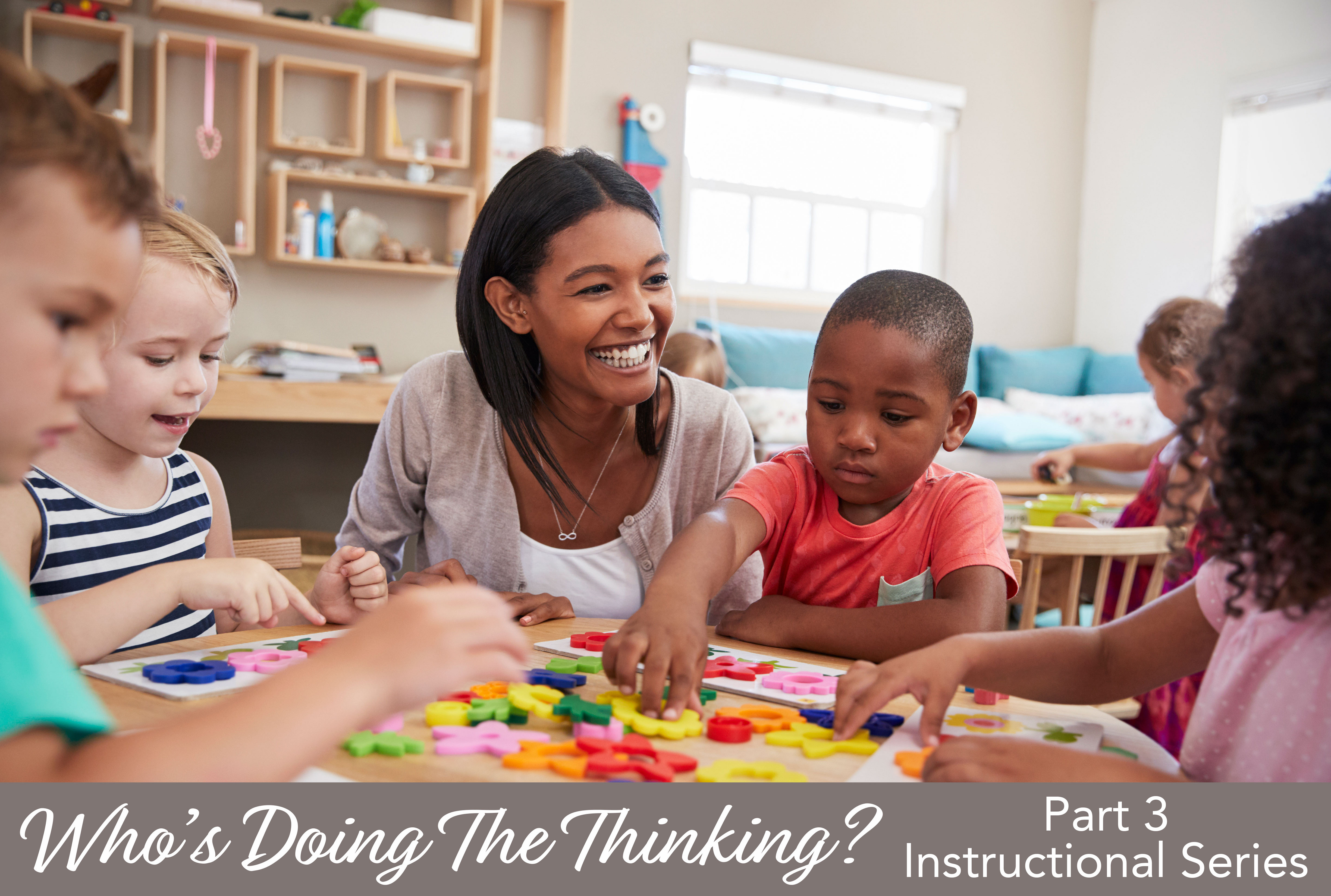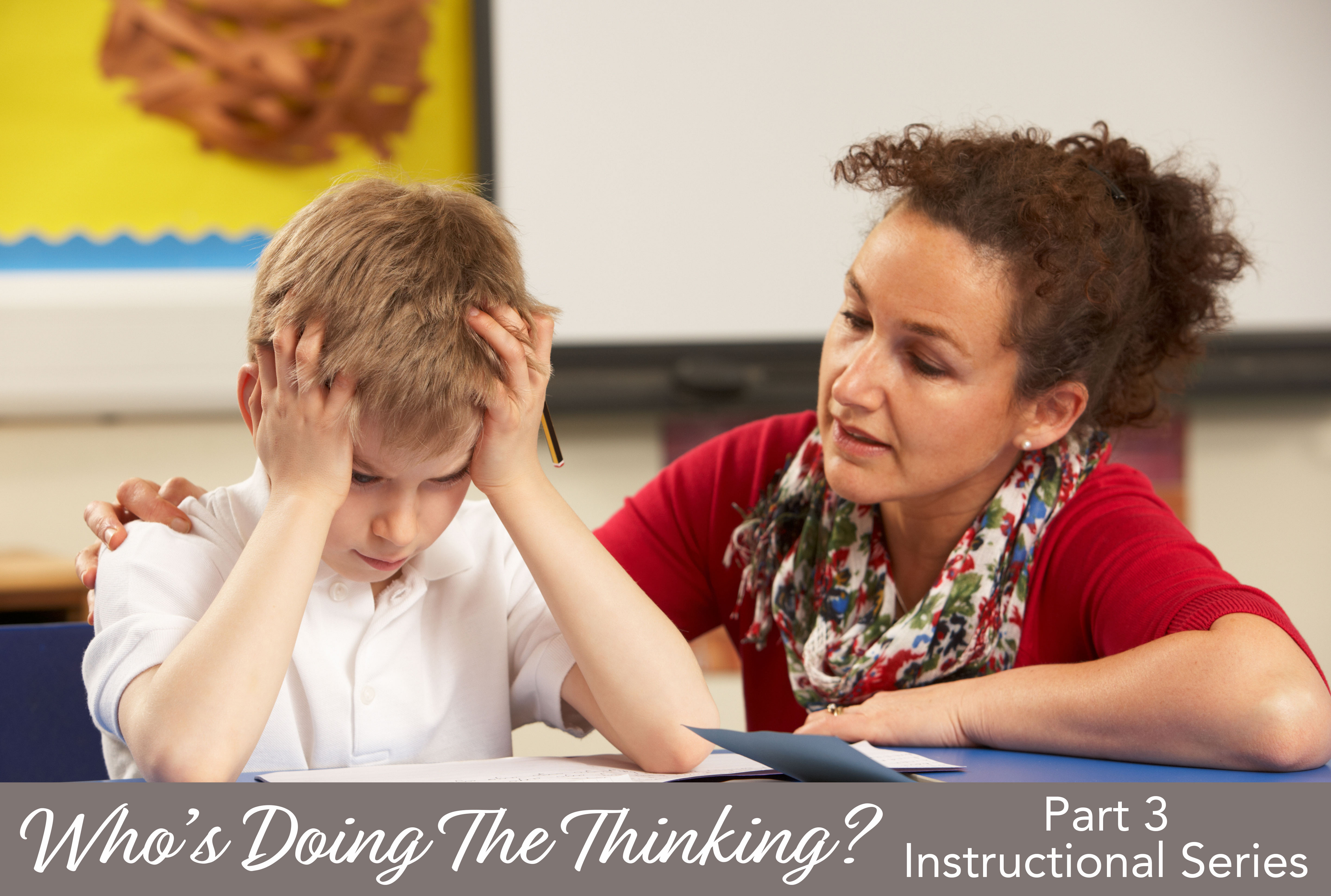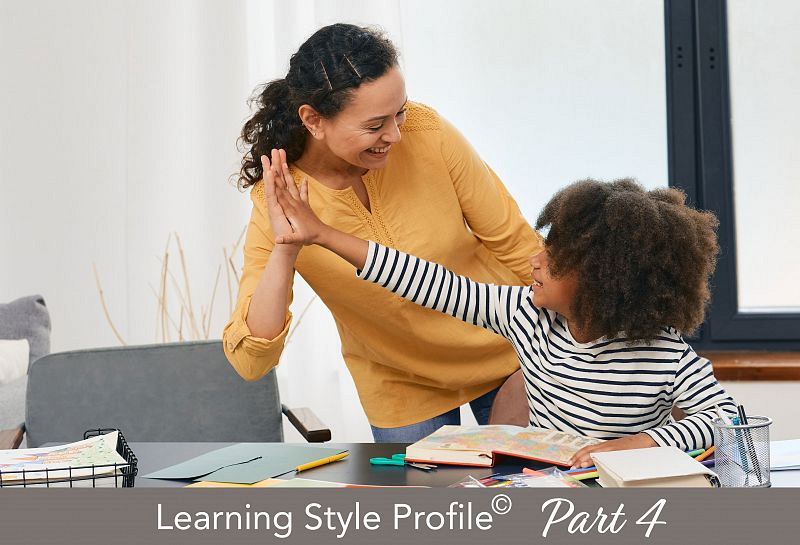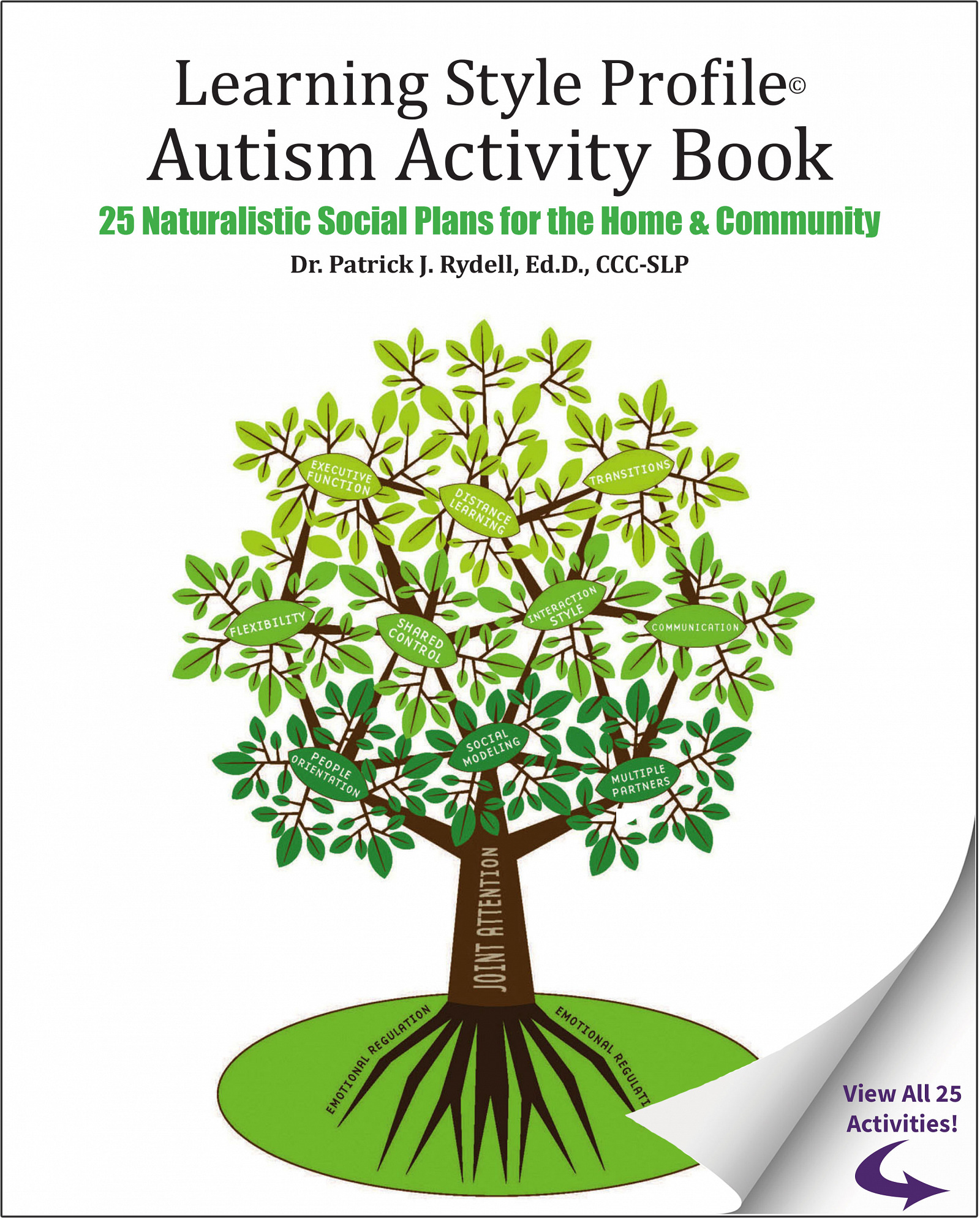Learning Style Profile© | Autism Courses For SLPs
Now there's a game plan to help SLPs and educators stay on an intervention pathway that leads to independent thinking for autistic children.
The Learning Style Profile© (LSP) for children with Autism Spectrum Disorder is a research-guided intervention approach that identifies 10 ASD learning style components. The LSP focuses on moving young children with ASD from learning style weaknesses to learning style strengths in order to build independent capacities in social and communication development. The LSP intervention strategies assist children to recognize social-communication and interpersonal cues in the naturalistic context in order to independently use their skills to engage in meaningful social interactions and conversation.
LSP Part I:
Building The Capacity For Socially Appropriate Conversation
#e213 Learning Style Profile© Part I: Building The Capacity For Socially Appropriate Conversation In Young Children With Autism Spectrum Disorder
by Patrick Rydell, Ed.D., CCC-SLP
This online course addresses 10 naturalistic, developmental-behavioral intervention components that represent the greatest challenges for professionals and families as they establish foundations for conversational skills in young children with an ASD. Participants will be introduced to Dr. Patrick Rydell’s Learning Style Profile© (LSP). Watch Preview Video >
LSP Part II:
How To Setup The Therapy Environment
#e226 Learning Style Profile© Part II: How To Set Up The Therapy Environment
by Patrick Rydell, Ed.D., CCC-SLP
Most professionals and parents involved in ASD intervention are familiar with the latest empirical research. But, what’s next? What is our game plan? The LSP Part II Advanced Course focuses on training professionals and parents for interventions that facilitate the child’s development from learning style weaknesses to learning style strengths. Watch Preview Video >
LSP Part III:
The "Who’s Doing The Thinking" Instructional Series
This group of five online courses is designed to address the challenges children with ASD experience as they struggle to learn how to become appropriate social communicators. Building on the Learning Style Profile© methods, these courses discuss how to create a therapeutic environment that guides children toward independent thinking and functional social communication skills while avoiding the unnecessary challenges of prompt dependency.
#e251 How Can Children With Autism Learn Social Skills From Their Peers? Teaching vs. Mentoring - LSP Part III Instructional Series
by Patrick Rydell, Ed.D., CCC-SLP
This course takes the empirical research on ASD peer-mediated interventions, and provides practical, common-sense strategies to help children with autism learn how to increase their social abilities with friends. Watch Preview Video >
#e252 How Can Children With Autism Become Less Object-Oriented And More People-Oriented? Strategies To Develop A Social Priority - LSP Part III Instructional Series
by Patrick Rydell, Ed.D., CCC-SLP
This course provides specific goals & strategies to use at school, therapy and home to help move children with autism from object-oriented to people-oriented learners. Watch Preview Video >
#e253 How To Create Joint Action Routines For Children With Autism: Strategies To Facilitate Vocabulary, Phrases And Social Use Of Language - LSP Part III Instructional Series
by Patrick Rydell, Ed.D., CCC-SLP
This course provides step-by-step strategies to design & implement Joint Action Routines (JARs) as a preferred tool to facilitate verbal communication in children with an autism spectrum disorder. Watch Preview Video >
#e254 How Can Children With Autism Learn Communication Skills From Their Peers? Overcoming Mechanical And Inflexible Language - LSP Part III Instructional Series
by Patrick Rydell, Ed.D., CCC-SLP
This course provides practical steps & strategies to move children with an autism spectrum disorder from unconventional, mechanical & inflexible verbal exchanges to conventional uses of language that is typical of friends, peers, and classmates. Watch Preview Video >
#e255 How To Support Speech Pathologists And Children With Autism To Reduce Potential Behavior Challenges: Strategies To Design Successful Therapy Sessions - LSP Part III Instructional Series
by Patrick Rydell, Ed.D., CCC-SLP
This course provides therapy design considerations to help mitigate interactional breakdowns so therapy sessions can be more productive from the start. Watch Preview Video >
LSP Part IV:
Learning Style Profile© Questionnaire
#e301 Learning Style Profile© Part IV: A Protocol for Identifying Social-Communication-Behavioral Breakdowns Between Children with ASD and Partners in the Classroom and Therapy
by Patrick Rydell, Ed.D., CCC-SLP
In spite of best efforts during therapy sessions, social-communication-behavioral breakdowns may still occur when working with children with ASD. Our interpersonal interactions may unintentionally trigger, or at least contribute to these breakdowns. This course identifies common scenarios in which breakdowns occur, and explains the sources of interactional breakdowns specific to each of the 10 LSP components. Watch Preview Video >
1.1 ASHA CEUs
Why is this series important to consider?
Research has shown (J Autism Dev Disord. 2015; 45(8): 2411–2428) that joint attention tasks and imitation and modeling instruction are all necessary precursors for the development of social skills and speech and language development. The "Who’s Doing The Thinking" Instructional Series explains and discusses how to implement these methods and strategies into any instructional program.
Learning Style Profile© New Fully Digital Resource!
Learning Style Profile© Autism Activity Book: 25 Naturalistic Social Plans For The Home & Community #DLSPAB01
by Patrick Rydell, Ed.D., CCC-SLP
This downloadable and reproducible Activity Book presents easy-to-use activities to assist professionals and parents. The activities and considerations presented will address how professionals can help parents as they prepare their child with autism for successful social experiences, such as... View More Details >

